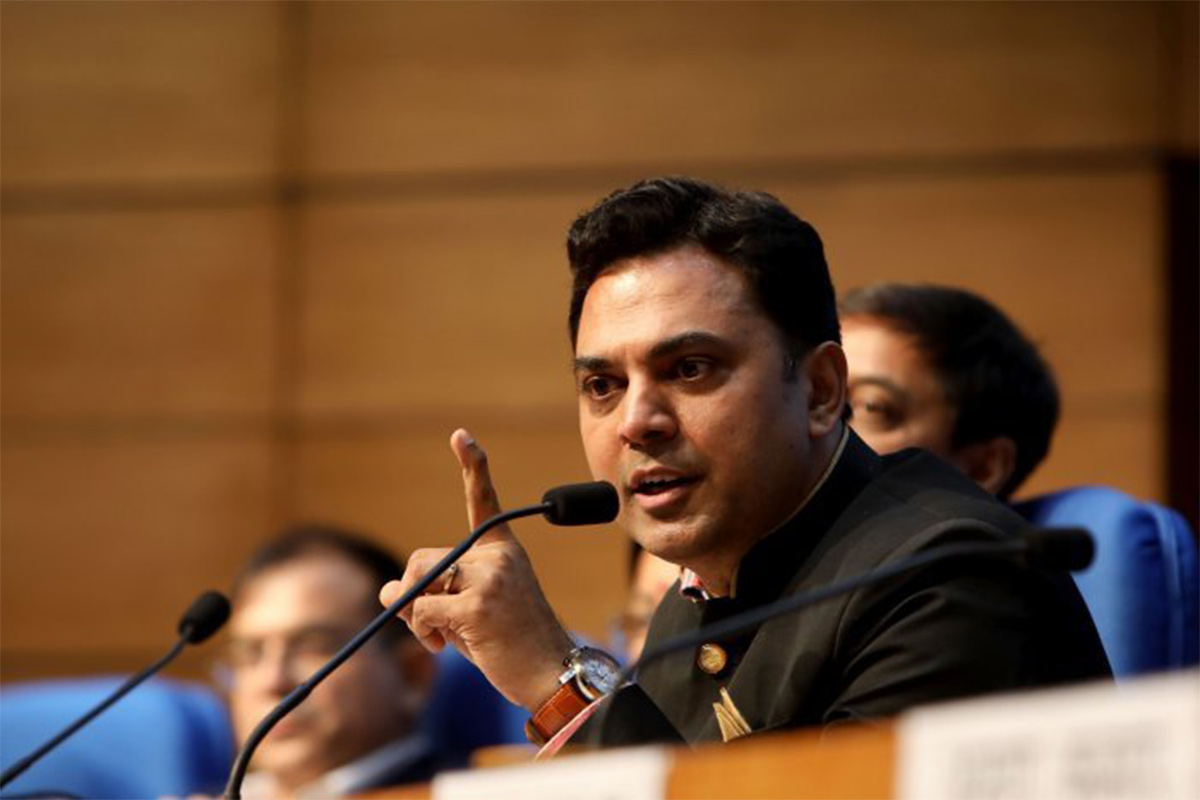India saw production worth Rs 67,275 cr under PLI for large-scale electronics: Eco Survey
Recently, the government approved an outlay of Rs 76,000 crore ($10 billion) for the development of semiconductors and display manufacturing ecosystem.
Gross Non-Performing Assets ratio of Scheduled Commercial Banks has decreased from 8.21 per cent at end-March, 2020 to 7.49 per cent at end-September, 2020.

The Survey pointed out that economic growth has greater impact on poverty alleviation than inequality and India needs to focus on growth to lift poor out of poverty. (Photo: AFP)
Economic Survey 2020-21 announced on Friday said that an asset quality review (AQR) exercise must be conducted immediately after the forbearance is withdrawn.
“Forbearance represents emergency medicine that should be discontinued at the first opportunity when the economy exhibits recovery, not a staple diet that gets continued for years. Therefore, policymakers should lay out thresholds of economic recovery at which such measures will be withdrawn,” the Survey, which was tabled in Parliament on Friday, stated.
It added that these thresholds should be communicated to the banks in advance so that they can prepare for the same.
Advertisement
“Prolonged forbearance is likely to sow the seeds of a much deeper crisis. As well, forbearance should be accompanied by restrictions on zombie lending to ensure a healthy borrowing culture,” it said.
Given the relaxation requirements, banks exploited the forbearance window for window-dressing their books and misallocated credit, thereby damaging the quality of investment in the economy, the document pointed out.
Gross Non-Performing Assets ratio of Scheduled Commercial Banks has decreased from 8.21 per cent at end-March, 2020 to 7.49 per cent at end-September, 2020.
However, the Financial Stability Report (FSR) released by the Reserve Bank of India has indicated that banks’ gross non-performing assets may rise to 13.5 per cent by September 2021, from 7.5 per cent in September 2020.
It further said that India, the fifth largest economy in the world has never been rated as the lowest rung of the investment grade (BBB-/Baa3) in sovereign credit ratings. India’s sovereign credit ratings do not reflect its fundamentals, it added.
The Survey pointed out that economic growth has greater impact on poverty alleviation than inequality and India needs to focus on growth to lift poor out of poverty.
COVID-19 pandemic emphasized the importance of healthcare sector and its inter-linkages with other sectors – showcased how a health crisis transformed into an economic and social crisis, it said.
It has also recommended a regulator for the healthcare sector must be considered given the market failures stemming from information asymmetry
“An increase in public healthcare spending from 1 per cent to 2.5-3 per cent of GDP can decrease the out-of-pocket expenditure from 65 per cent to 35 per cent of overall healthcare spending,” it said.
Advertisement